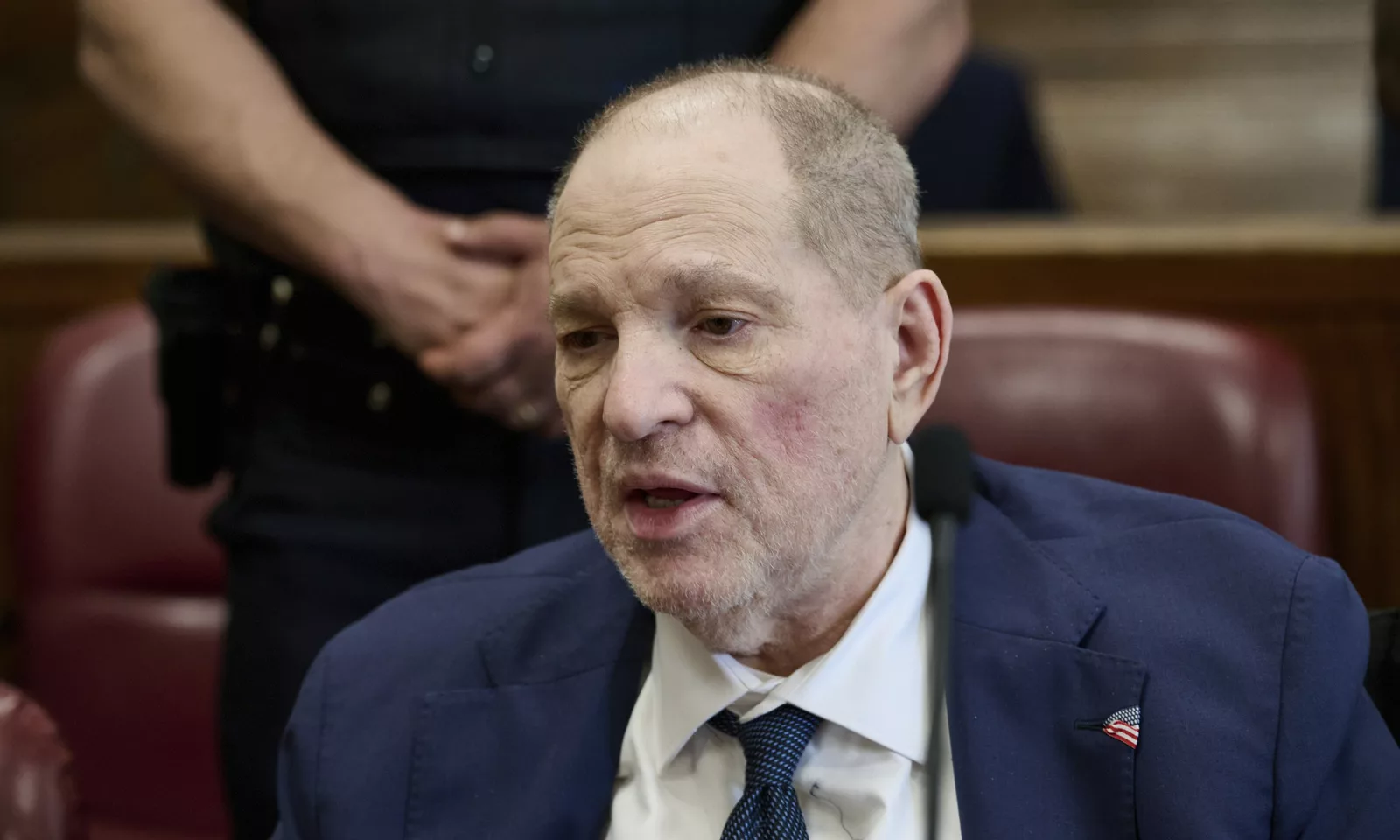



Former movie mogul Harvey Weinstein was convicted Wednesday (June 11) of one of the top charges in his sex crimes retrial. However, he was acquitted of another, and jurors could not reach a verdict on a third charge. The split verdict provides some vindication to his accusers and prosecutors — but also to Weinstein — in the landmark #MeToo case.
Jury-room strains started leaking into public view last Friday, when a juror asked to be excused because he felt another was being treated unfairly. Then, on Monday, the foreperson complained that other jurors were pushing people to change their minds and talking about information beyond the charges.
The foreperson raised similar concerns again on Wednesday. In a closed-door discussion with prosecutors, Harvey’s defense lawyers, and the judge, the foreperson said another juror was yelling at him for sticking to his opinion and at one point vowed, “You going to see me outside.” “I feel afraid inside there,” the foreperson told the judge and attorneys, according to a transcript. Weinstein’s lawyers asked unsuccessfully for a mistrial each time the concerned jurors came forward.
Weinstein himself spoke out on Wednesday, urging the judge to halt the trial. “It’s just not fair,” he reportedly said, per the Associated Press.
“My life is on the line, and you know what? It’s not fair,” the former Hollywood heavy-hitter declared after making an unusual request to address the court. “It’s time, it’s time, it’s time, it’s time to say this trial is over.”
Weinstein’s initial conviction five years ago did irreparable damage to the reputation and access of one of Hollywood’s most powerful men. It was also a pivotal moment for the #MeToo movement. But that conviction was overturned last year, and the case was sent back for retrial in the same Manhattan courthouse.
This time, a majority-female jury convicted Harvey Weinstein of forcibly subjecting Miriam Haley, a producer and production assistant, to a criminal sex act in 2006. The retrial was expanded with new charges related to Kaja Sokola. She’s a Polish psychotherapist who said Weinstein forced oral sex on her when she was a 19-year-old model. Jurors acquitted Weinstein of that criminal sex act charge.
Jurors were to continue deliberating Thursday on a rape charge involving hairstylist and actor Jessica Mann. Under New York law, the third-degree rape charge carries a lesser penalty than the first-degree criminal sex act offense. But the judge told the foreperson he won’t have to go in the jury room if he doesn’t want to, adding more uncertainty to the proceedings. Harvey
Weinstein, 73, denies sexually assaulting or raping anyone. He chose not to testify in the retrial. His attorneys portrayed his accusers as Hollywood wannabes and hangers-on who willingly hooked up with him to court opportunity. The team also recast the encounters as crimes years later to collect settlement funds and #MeToo approbation.
Haley, who had hesitations about testifying again, spoke outside court Wednesday (June 11). She said the court process had been “exhausting and at times dehumanizing.” Adding, “But today’s verdict gives me hope.”
Despite the verdict related to her allegations, Sokola called Wednesday’s partial verdict “a big win for everyone” and the “closing of a chapter that caused me a lot of pain throughout my life.”
In the trial, the women weren’t too low-key about their energy for Harvey Weinstein. Kaja Kokola was confronted with a passage from her private journal. At other flashpoints, Jessica Mann pointed with annoyance and anger at Harvey as she walked past him in court. Haley cursed at him from the witness stand.
Weinstein’s accusers said he exploited his Tinseltown influence to dangle career help, get them alone, and then trap and force them into sexual acts. They spent days on the stand explaining the complexity of the ties to him. The women stayed in contact with Weinstein, saw him again, and at times accepted or requested invitations or favors, according to testimony and documents. Mann said she had a consensual relationship with Weinstein that began before and continued after he allegedly raped her. The accusers said they were trying to reckon with what had happened, attempting to suppress the assaults for their careers’ sake or trying to keep the peace with an influential man.
Weinstein’s companies produced and distributed a string of best Oscar winners for decades. He stood on the Oscars stage as a producer of the 1999 best picture winner ‘Shakespeare in Love.’ He also became a prominent Democratic donor.
Then, in 2015, an Italian model told police that Harvey Weinstein had abruptly groped her in his New York office. No charges came from the report. Two years later, The New York Times and The New Yorker detailed decades of sexual harassment and sexual assault allegations against Weinstein. Those disclosures made #MeToo a global rallying cry for sexual misconduct awareness and accountability.
Harvey Weinstein ultimately was convicted of sex crimes and sentenced to prison in New York and California. His California appeal is ongoing. However, New York’s highest court awarded Weinstein a new trial, saying the former trial judge had allowed prejudicial testimony.
Associated Press Staff Jennifer Peltz and Michael R. Sisak contributed to this report via AP Newsroom.
The post Jury Convicts Harvey Weinstein On One Charge, Acquits Him Of Another In Sex Crimes Retrial (UPDATE) appeared first on The Shade Room.

